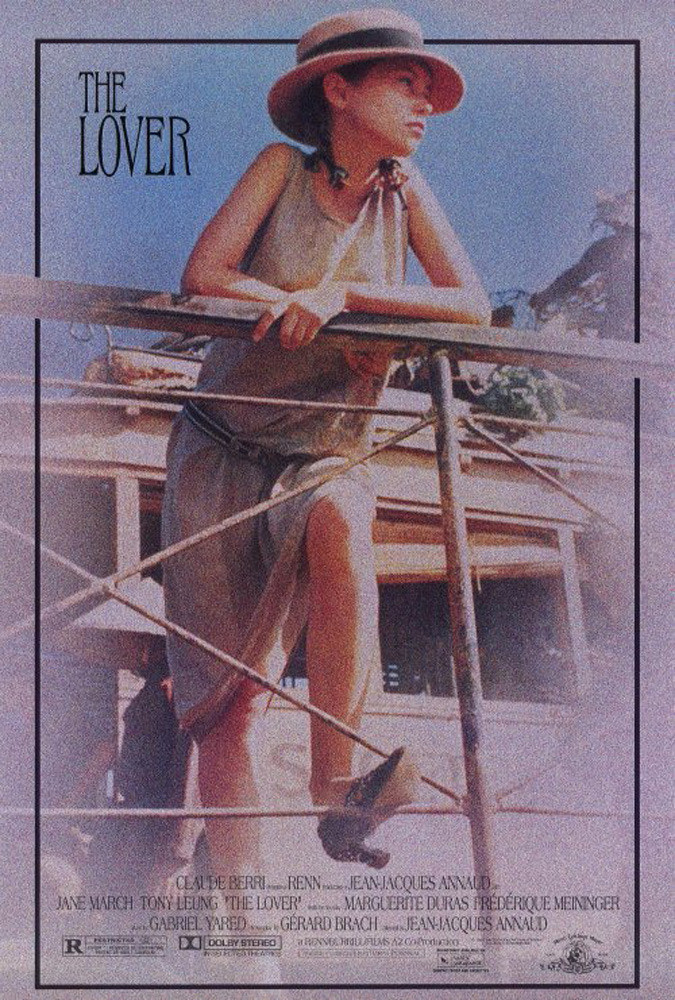Marguerite Duras’ novel The Lover tells the story of a passionate, secret sexual adventure between a young French girl and an older Chinese man in Indochina in the 1920s. She says it is autobiographical, but I suspect it is the autobiography of her imagination, not of her real life. The elements in the story are the basic stuff of common erotic fantasies: Sex between strangers separated by age, race and social convention, and conducted as a physical exercise without much personal communication.
Perhaps these adventures really took place, in one form or another. It hardly matters. Jean-Jacques Annaud’s film treats them in much the same spirit as “Emmanuelle” or the Playboy and Penthouse erotic videos, in which beautiful actors and elegant photography provide a soft-core sensuality. As an entry in that genre, “The Lover” is more than capable, and the movie is likely to have a long life on video as the sort of sexy entertainment that arouses but does not embarrass.
Is “The Lover” any good as a serious film? Not really.
Annaud and his collaborators have got all of the physical details just right, but there is a failure of the imagination here; we do not sense the presence of real people behind the attractive facades of the two main actors.
They are Jane March, as a French teenager living in a provincial area of Indochina and sent to Saigon to attend boarding school, and Tony Leung, as a rich Chinese aristocrat in his 30s. They are attracted to each other in the first place by the kind of unconditional erotic magnetism that the French call a thunderbolt; they look, they see, they lust. Soon they are meeting regularly in an anonymous room in a Chinese district of the city, where their sexual encounters can only be described as inventive and thorough.
Life goes on outside the walls of this cocoon. The girl hates her life – hates the bloody-mindedness of her teachers and fellow students, and the descent of her dysfunctional family into depravity. Of the man we learn less; he comes from a proud old family, and his bride will be selected for him according to the ancient ways. The secret love affair is of course forbidden by the mores of the time; both races hold strong feelings against interracial romance. But the movie treats those attitudes less with indignation than with relief; because society prevents these two lovers from being seen together in public, the movie doesn’t have to deal with their roles in society. Like classic pornography, it can isolate them in a room, in a bed: They are bodies that have come together for our reveries.
I wanted to know more. I believe true eroticism resides in the mind; what happens between bodies is more or less the same, but what it means to the occupants of those bodies is another question.
What do these two people really think about one another? Do they love in the romantic sense? Is each escaping from the idea of a more personal relationship? Is this a purely sexual arrangement? At the end, as the girl leaves Saigon and her ship passes the dock, she sees the man get out of his limousine and look at her departing ship.
Years later, he visits Paris, without result. What did they lose? What would have been possible between them, in another world – or even in this one? The film does not seem to know.



















